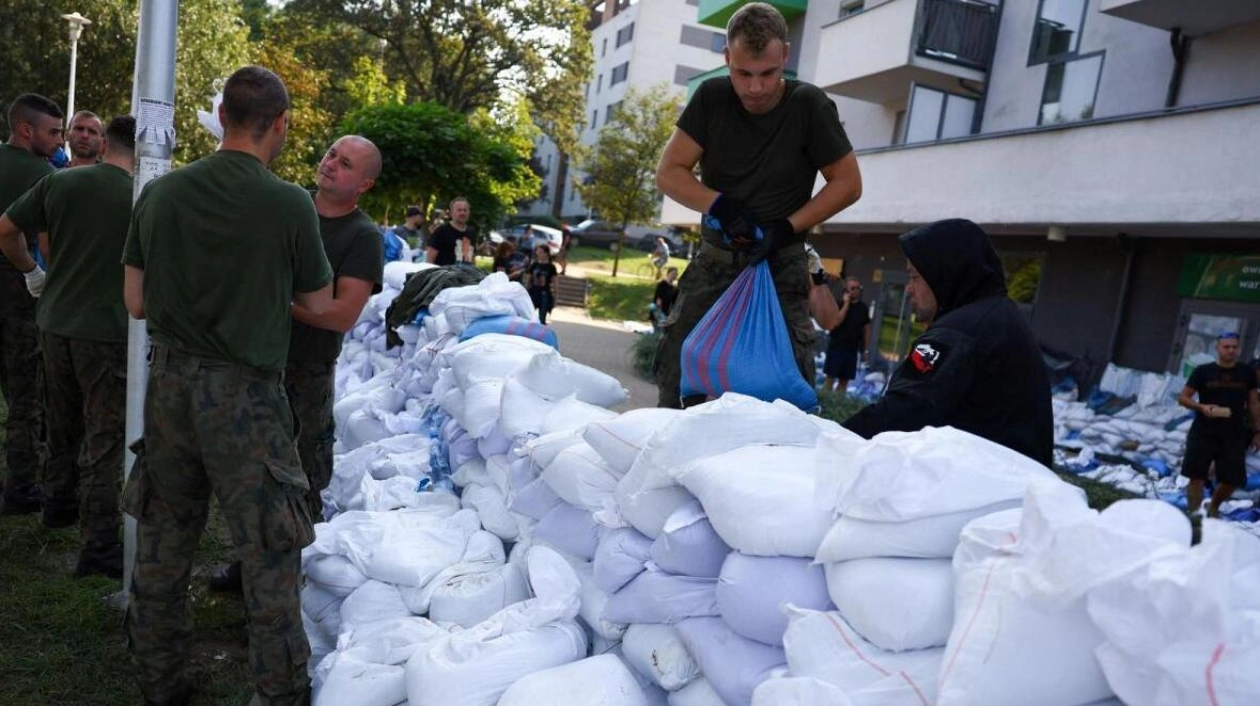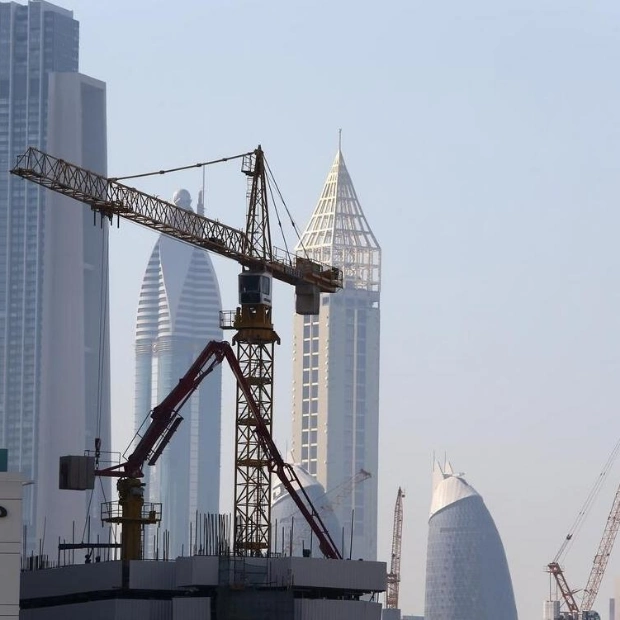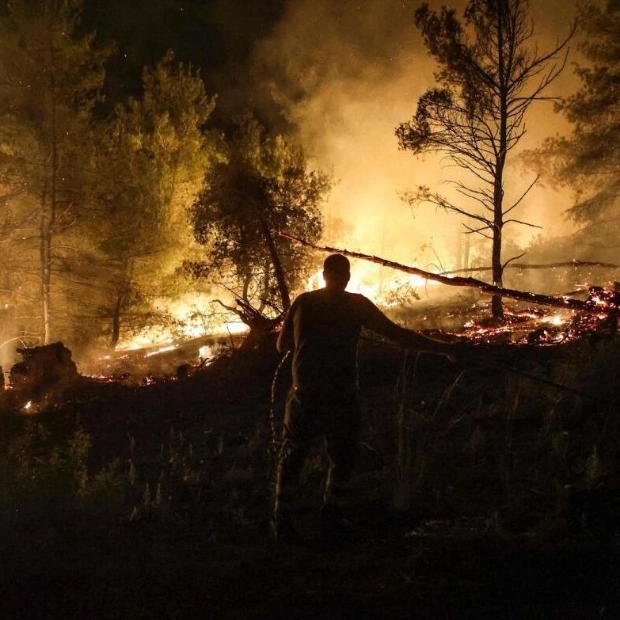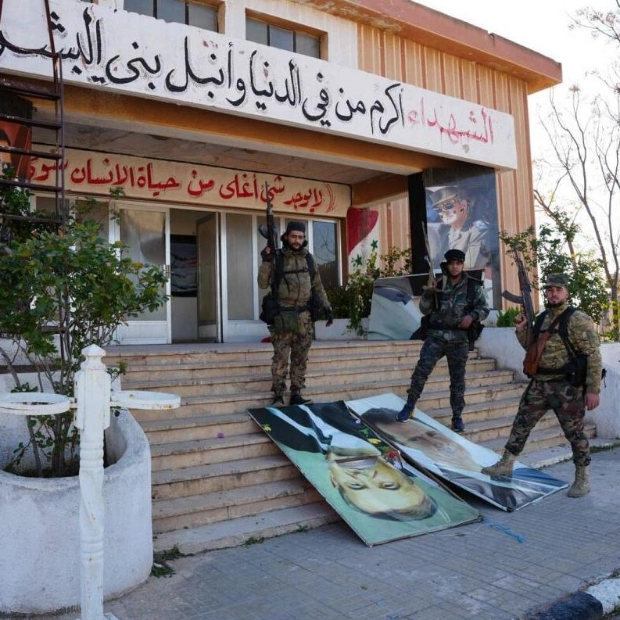Volunteers and emergency responders in Poland and Hungary worked tirelessly on Tuesday to fortify riverbanks and buildings as floodwaters, which have caused widespread devastation across central Europe, began to rise in new areas. Meanwhile, the Czech Republic reported another fatality. The worst floods to strike central Europe in at least two decades have left a path of destruction from Romania to Poland, spreading mud and debris, destroying bridges, submerging cars, and leaving authorities and residents with damages estimated to cost billions of dollars.
On Wednesday, authorities in the Czech Republic confirmed the death of a fourth person in the country, bringing the regional death toll to at least 23. Seven people have died in Romania, seven in Poland, and five in Austria. Czech media reported that the latest victim was a 70-year-old woman from a village near Jesenik, found 20 meters from her home. She had been evacuated on Saturday but returned home on Sunday, according to Czech TV.
In the Czech Republic, water levels were mostly receding, but rivers were still peaking in some parts of southern Bohemia. In Poland's third-largest city, Wroclaw, residents formed lines to pass sandbags to strengthen riverbanks and protect buildings. Further south, soldiers constructed sandbag walls along the Oder's banks. Authorities anticipate that water levels in Wroclaw will peak on Thursday.
"We are focusing on keeping the Oder within its banks," said Polish Interior Minister Tomasz Siemoniak. "We have a very challenging dozen or so hours ahead of us." The Polish Defense Ministry reported that over 14,000 soldiers had been deployed to flood-affected regions, with the armed forces using helicopters to evacuate people and bolster flood defenses, while drones monitored the situation from above. At a water level measurement station near Wroclaw, the Oder had already significantly surpassed the alarm level.
Albert Wrotnowski, a 29-year-old artist living nearby, was securing the riverbank with sandbags. "The mood is positive," he told Reuters. "I think people have such faith and hope, and you can see it." Pope Francis addressed the "tragic hardships" caused by the floods during his weekly general audience in St. Peter's Square, expressing his closeness and praying for those who have lost their lives and their families.
In Hungary, authorities opened a dam in the northwest to divert water from the Leitha River into an emergency reservoir, aiming to protect the city of Mosonmagyarovar. The water was released onto agricultural land. In Budapest, the Danube is expected to peak around or slightly above 8.5 meters, likely on Friday or Saturday. Hungarian Prime Minister Viktor Orban visited the village of Kismaros, north of Budapest on the Danube's banks, to assess the preparations for rising waters.
In Kismaros, 70% of the defenses were in place, with nearly 100,000 sandbags already used, according to government spokesperson Zoltan Kovacs. "We are waiting for the peak in Kismaros on Friday," Orban wrote on Facebook. "It will be difficult, but our soldiers will stand their ground. We will do it!" European Commission President Ursula von der Leyen is scheduled to visit Wroclaw on Thursday, where she will meet with leaders from affected countries. Polish Prime Minister Donald Tusk has urged Brussels to provide financial aid.
Poland's Finance Minister Andrzej Domanski announced at a crisis meeting in Wroclaw that Poland had allocated 2 billion zlotys ($521 million) to address the flood's impact. Tusk also mentioned reports of soaring prices for many products in flood-hit areas and did not rule out the introduction of price controls. He further stated that the government would cover mortgage instalments for a year for those whose homes had been flooded.
Czech Finance Minister Zbynek Stanjura expressed his hope that parliament would approve a budget amendment to accommodate flood relief, despite the unknown cost of the damage, which he estimated could be around $4 billion. Mayors of some Czech towns along the Opava River demanded the postponement of this weekend's regional assembly and upper house of parliament elections due to power outages and flooded polling stations. However, the government decided to proceed with the vote, planning to use makeshift voting stations and other improvised solutions.






